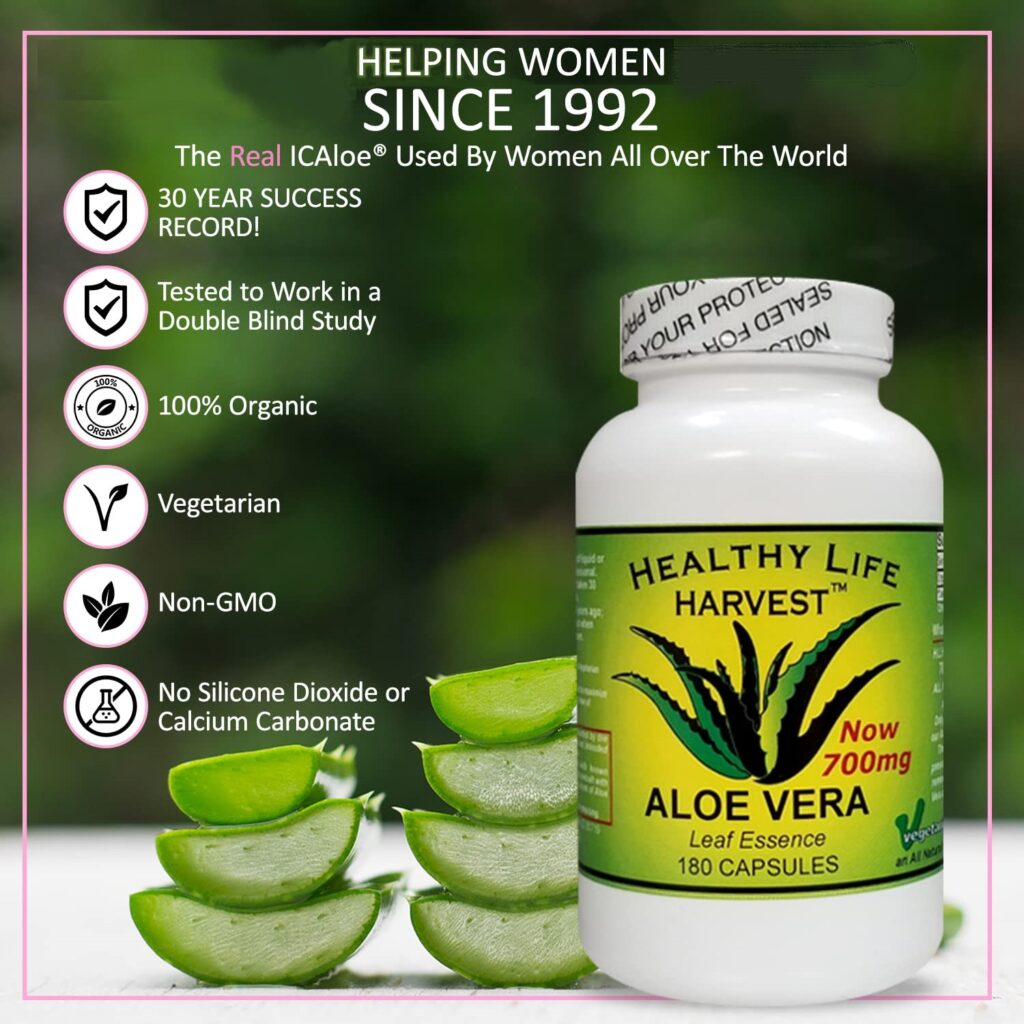Introduction: Interstitial cystitis (IC), also known as painful bladder syndrome, is a chronic condition characterized by recurring bladder pain, pressure, and a frequent need to urinate. For those living with IC, daily life can be significantly impacted by unpredictable flare-ups and constant discomfort. While there’s no known cure for IC, there are various strategies that can help you manage your symptoms and regain control over your life. This guide delves into the causes, triggers, and effective treatments available for IC, including the use of ICAloe Aloe Vera Tablets for IC pain relief, which are made from a special blend of aloe vera for enhanced effectiveness.
What is Interstitial Cystitis? Unlike typical urinary tract infections, interstitial cystitis is not caused by bacterial infection and often has no clear underlying cause. It is believed to be linked to damage to the bladder lining, which may allow irritating substances in urine to inflame the bladder wall. Other theories suggest that IC may result from autoimmune responses, nerve dysfunction, or pelvic floor muscle problems. Symptoms vary from person to person but commonly include bladder pain, urinary urgency, and frequent urination, sometimes as often as 60 times a day during severe flare-ups.
Common Triggers of IC Symptoms: Living with IC often involves identifying and avoiding personal triggers that can worsen bladder inflammation. Some of the most common triggers include dietary factors, such as caffeine, alcohol, carbonated beverages, and acidic foods like citrus fruits and tomatoes. Stress is also a significant trigger, as it can exacerbate inflammation and increase bladder sensitivity. Keeping a symptom journal where you note foods, beverages, and activities that seem to worsen your symptoms can help you pinpoint and avoid your triggers over time.
Treatment Options: Finding Relief While IC is a chronic condition, there are several treatment approaches that can alleviate symptoms and improve quality of life:
- Medications: Doctors often prescribe oral medications like antihistamines or anti-inflammatory drugs to reduce inflammation and bladder sensitivity. In some cases, bladder instillations—where medication is introduced directly into the bladder—can provide targeted relief.
- Bladder Training: Gradually increasing the time between urinations can help stretch the bladder and reduce frequency over time. This technique, known as bladder training, may be recommended alongside other treatments to retrain the bladder.
- Physical Therapy: Since pelvic floor dysfunction is often associated with IC, pelvic floor physical therapy can be highly effective in reducing bladder pain. A physical therapist can help release tension in the pelvic muscles, improving bladder function and reducing discomfort.
- Lifestyle Adjustments: Learning to manage stress through relaxation techniques, yoga, or meditation can also help alleviate symptoms. Reducing stress is particularly important, as emotional tension can exacerbate IC flare-ups.
Many people with IC also turn to natural remedies for relief. ICAloe Aloe Vera Tablets for IC are a trusted choice due to their enhanced formulation. Made from a special blend of aloe vera, ICAloe’s capsules are designed to deliver maximum anti-inflammatory and soothing benefits, providing targeted relief for IC pain and helping reduce bladder irritation.
Dietary Considerations: Foods That Soothe and Foods to Avoid For many IC sufferers, diet plays a crucial role in managing symptoms. Following an IC-friendly diet involves avoiding known irritants and focusing on soothing, anti-inflammatory foods. Safe options typically include lean proteins, such as chicken or fish, non-acidic fruits like pears and blueberries, and well-cooked vegetables like zucchini and squash. Many people with IC find relief by cutting out acidic or spicy foods, as well as beverages like coffee, tea, and soda. Additionally, staying well-hydrated by drinking plain water throughout the day helps dilute urine and reduces irritation.
For added support, consider using ICAloe Aloe Vera Tablets for IC pain. With a special blend of aloe vera, these capsules offer superior relief from bladder irritation and inflammation compared to ordinary aloe vera products. They are designed specifically for people dealing with chronic bladder pain, helping soothe and restore bladder health.
Coping with the Emotional Impact of IC: Living with chronic pain can be mentally and emotionally exhausting. Many people with IC experience frustration, anxiety, and even depression as they cope with the unpredictable nature of their condition. Building a strong support system is essential to navigating the emotional challenges of IC. Support groups, either in-person or online, can provide a sense of community and understanding. Cognitive-behavioral therapy (CBT) and mindfulness practices can also help in managing the emotional impact, allowing you to focus on improving your mental well-being alongside physical treatments.
Conclusion: Interstitial cystitis can be a life-altering condition, but with the right management strategies, it’s possible to reduce symptoms. ICAloe has been tested in a double-blinded placebo study and proven to work for Interstitial cystitis for over 30 years, with NO side effects. You can read see the study at ICAloe.com


